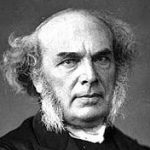Lesson Focus: This lesson is about God’s will that everyone be saved and that all believers live pure lives and pursue what is good for them and others.
God Wants All to Be Saved: 2 Peter 3:8-9.
[8] But do not overlook this one fact, beloved, that with the Lord one day is as a thousand years, and a thousand years as one day. [9] The Lord is not slow to fulfill his promise as some count slowness, but is patient toward you, not wishing that any should perish, but that all should reach repentance. [ESV]
The importance of remembering continues in these verses. In verses 1-2 the readers were exhorted to remember the words of the prophets and the commands of the apostles. Such remembrance was crucial because scoffers had emerged who doubted the future coming of Jesus Christ. Indeed, these scoffers had forgotten [5] and not perceived the significance of God’s works in history. They had forgotten these things because they had strayed from God and repudiated the gospel. Peter feared that they could influence his readers. But he also was concerned that the faithful might forget [8] important truths, not because they were rebelling but simply because the false teachers might sow confusion in their minds. Hence, he gave them two further arguments about the coming of the Lord. First, the apparent failure of the Lord to appear within a certain time frame should not dampen their faith. The Lord does not reckon time as we do [8]. A thousand years is like one day to Him. What seems like a long time to us is not long to Him. The fact that He has not arrived, therefore, says nothing about whether He will come in the future. Second, the Lord is not slow in fulfilling His promise to return [9]. He delays His coming to give opportunity for all to repent. Finally, in verse 10 Peter reiterated with confidence that the day of the Lord will arrive. It will come suddenly, and when it does, the world as we know it will be dissolved.
[8] This section of the letter is marked by beloved, as in 3:1,14,17. The word signifies that the readers were the recipients of God’s saving love and perhaps also communicates Peter’s tender concern for his readers. Peter exhorted the beloved believers not to forget or overlook crucial truth about God, a truth they were liable to forget since they were under pressure from the teachers, who quite likely argued that too much time had elapsed for the promise of Christ’s return to be credible. But Peter reminds his readers of who God is. The lives of human beings are short and frail, but God does not weaken or fail with the passage of time. In one sense the marking of time is irrelevant to God because He transcends it. Peter applied this insight to the coming of the Lord. If the passing of time does not diminish God in any way and if He transcends time so that its passing does not affect His being, then believers should not be concerned about the so-called delay of Christ’s coming. The passing of a thousand years, after all, is like the passing of a single day to Him. Peter is contrasting here the eternity of God with the impatience of human expectations. Peter had not surrendered the imminence of Christ’s coming here. He was scarcely arguing that Christ would not come until a great amount of time had elapsed. Peter was just preserving the tension between the imminence of Christ’s coming and the uncertainty about when He will come.
[9] The first part of this verse draws an implication from verse 8. If God does not reckon or indeed experience time as we do, then it follows that He is not slow about keeping His promise that the Son would return. The phrase as some count slowness refers to the false teachers who lack an understanding of God’s ways. Peter explained why the coming is delayed. God is patient with His people. Notice that the verse says patient toward you, who in this context refers to the believers that Peter is writing to. The reason for His patience is then explained. He does not wish that any should perish, but that all should reach repentance. The idea that God is patient so that people will repent is common in the Scriptures. We must ask here who is in view when Peter spoke of any and all. One option is that he considered every person without exception. But how does this fit with the teaching that God has ordained and decreed that only some will be saved? The answer that has been given throughout church history to this issue is that we must distinguish between two different senses of God’s will. There is a decretive will of God and a desired will of God. God desires the salvation of all in one sense, but He does not ultimately ordain that all will be saved. This view has been recently and convincingly argued by John Piper (see "Are There Two Wills in God?" at www.desiringgod.org). The second option to understanding this verse is by viewing any and all as an expansion of you. According to this view, Peter did not reflect on the fate of all people in the world without exception. He considered those in the church who had wavered under the influence of the false teachers. God desires every one of them to repent. But even if this solution is correct, it does not solve the issue theologically, for Peter probably reflected on God’s desired will instead of decreed will in this instance. That is, he was not teaching that all of those in the church whom God desires to repent will actually repent. Even if the verse is restricted to those influenced by the false teachers, Peter referred to what God desires, not to what He ordains. At the end of the day, restricting any and all to church members is not the most satisfying solution in this text. Rather we should view the verse as referring to God’s desire that everyone without exception be saved. It follows, then, that Peter spoke of the desired rather than the decreed will of God. God has not ordained that all will be saved since many will perish forever. Still, God genuinely desires in one sense that all will be saved, even if He has not ultimately decreed that all will be saved. Granted this complex distinction is beyond our understanding but this is not surprising since God is an infinite and complex being, one who exceeds our understanding. But the true test to accepting this distinction between the two wills of God is not our ability to understand but rather sound biblical exegesis. Does Scripture teach the two wills of God? Again you are referred to the article by Piper as one of the more recent attempts to provide the biblical exegesis for this position. But consider the problems with the position that says it is truly God’s desire that all people are saved; that there is only one will in God. We know from Scripture that not everyone will be saved. So this position says that God is not able to accomplish what He wants to accomplish. And this is exactly what Peter is writing against in this passage; the idea that God does not have providential control over His universe and Jesus will not return as He had promised. But it is essential that we do not get so caught up with this difficulty that we overlook Peter’s main intent here which is that, while Christ delays His return, believers should not lose hope in His certain return. We should not listen to the scoffers that will come in the last days [3] but rather find comfort in the truth that God is still in control and has determined the best possible time for Christ to return in all of His glory and nothing can prevent that from happening. In the meantime, while we wait for His coming, we should live lives of holiness and godliness.
God Wants All Believers to be Holy: 1 Thessalonians 4:1-5.
[1] Finally, then, brothers, we ask and urge you in the Lord Jesus, that as you received from us how you ought to live and to please God, just as you are doing, that you do so more and more.
[2] For you know what instructions we gave you through the Lord Jesus. [3] For this is the will of God, your sanctification: that you abstain from sexual immorality; [4] that each one of you know how to control his own body in holiness and honor, [5] not in the passion of lust like the Gentiles who do not know God; [ESV]
[1-2] This new section of exhortations and teaching begins with finally which indicates a transition to a new theme in the letter and not to indicate Paul has reached the end of his letter. The appeal to brothers begins with two verbs that appear frequently in the exhortations contained in personal letters of this time: ask and urge. When used together like this they form a strong exhortation where Paul is strongly urging the believers to adopt a particular kind of moral conduct. Paul adds in the Lord Jesus to give authority and weight to his exhortation. Thus Paul intends what follows to be more than just good advice or friendly suggestions. The main exhortation is that they continue to progress in their moral development: you do so more and more. They are to abound or overflow in their Christian walk in order to please God. The fact that the Thessalonians have already put into practice aspects of the Christian ethic and are now exhorted to progress in the same implies that they had already received the fundamentals of moral instruction. The content of that sacred moral tradition was that it was necessary for them to walk and to please God which points to serving God in a way that makes His interests a person’s primary ambition. Reminders and repetition of what people had learned were considered essential for moral progress. Over and again Paul urges the Thessalonians to recall what they already knew, and when his teaching was remembered, his hope was that they would not ignore it but would put it into practice. The instructions they received were not mere guidelines that could be ignored but commands or orders. When the Thessalonians accepted the apostolic proclamation as the word of God [2:13], they also came under obligation to obey the moral commandments that accompanied it.
[3-5] One aspect of the instructions was that it was the will of God that they be sanctified. Here the will of God is God’s moral plan for human beings that should be both known and put into practice. The focus in this verse is on purity in sexual relationships as opposed to being impure. The word used for sanctification emphasizes the process that began in their conversion and that is made a living reality in their lives through the power of the Holy Spirit. Although the sanctification of their entire lives progresses only through divine agency [5:23], the Thessalonians have the responsibility of aligning their conduct with the will of God. In the present situation this means that you abstain from sexual immorality which meant any kind of sexual relation outside of heterosexual marriage. This was God’s will for them and what distinguished them from the people around them as those whom God had separated for Himself. The way to abstain from sexual immorality is to control his own body in holiness and honor. Thus Paul makes very clear that the kind of control he has in mind is that which is in accord with the will of God. The same word is used in verse 3 (sanctification), here in verse 4 (holiness) and in verse 7 (holiness). This indicates that Paul’s emphasis is that sanctification should define how believers exercise their sexuality, which means abstaining from all forms of sexual immorality [3] and not being carried along in the passion of lust like the Gentiles who do not know God [5]. Honor is the respect and recognition a person receives from the community because of his or her position or achievements. Christians should exercise control over their bodies as those who hope to receive honor from God. Their bodies are not to be governed by the burning passions that arise out of their sexual desire as the heathen are. According to Paul, ignorance of God (do not know God), or the absence of a relationship with Him, was understood as the prime cause of immorality among the Gentiles. The implication for the church is clear. Faith and Christian ethics are bound together in such a way that the person who knows God will not be driven by sexual passions but will rather live according to the will of God. What determines the sexual conduct of the pagans is their desire to satisfy their sexual passions, but the guide to Christian sexuality is knowing God and longing to please Him.
God Wants All Christians to Pursue Good: 1 Thessalonians 5:15-22.
[15] See that no one repays anyone evil for evil, but always seek to do good to one another and to everyone. [16] Rejoice always, [17] pray without ceasing, [18] give thanks in all circumstances; for this is the will of God in Christ Jesus for you. [19] Do not quench the Spirit.
[20] Do not despise prophecies, [21] but test everything; hold fast what is good. [22] Abstain from every form of evil. [ESV]
[15-18] Because of the hostilities the Christians in Thessalonica faced [2:14], there was sufficient motivation for the believers to seek ways to avenge themselves on their persecutors. Paul shows the Thessalonians a different path to follow than resorting to personal vengeance. They are to do good to all, whether the person who did them ill is from within or outside the congregation. The verb seek means to pursue or strive for. The implication is that effort needs to be expended in order to do good and not evil. In this group of three exhortations, Paul leaves the instruction about the social obligations of the believers and turns to the habits that characterize Christians’ relationship with God. The marks of a Christian laid out in these verses are joy, prayer and gratitude. Joy or rejoicing should always be in their lives, in whatever circumstances they found themselves. Paul never encourages believers to deny that adversity brings sadness and grief, but he recognizes that in the midst of the most agonizing situations the presence of God through His Spirit can infuse the soul with hope and the heart with joy. This joy is rooted deeply in the gospel and became one of the primary distinctives of the Christian community. The second exhortation is to pray without ceasing. Prayer was not to be limited to prescribed hours but should rather be a common and constant element in their daily life. The third exhortation is to give thanks in all circumstances. Paul encourages the Thessalonians also to give thanks to God as an essential part of their relationship with Him. Thanksgiving should characterize a Christian, just as joy and prayer are constants in their lives. Paul concludes this trilogy of Christian characteristics by explaining that joy, prayer, and thanksgiving are what God has called them to, for this is the will of God. Thus the call to joy, prayer, and thanksgiving are not optional, secondary characteristics of the Christian’s existence but stand at the center of God’s plan for His people in Christ Jesus.
[19-22] This last group of imperatives Paul delivers includes five exhortations that concern the use and control of prophecy within the church. Some people in the congregation were prohibiting prophecy. Paul counters this tendency by saying that although this manifestation of the Spirit should be regulated, prophecy should not be banned from the meetings of the assembly. The first exhortation contains the verb quench which means to extinguish the fire. Some Thessalonians appear to have attempted to prohibit manifestations of the Spirit in their church. Since the presence of the Holy Spirit in the community is compared with fire, the verb would aptly describe the attempts to eliminate these manifestations. The second exhortation repeats the idea of the first, with the difference that now we are given some insight into why some in the church wanted to extinguish the gift of prophecy. Evidently there were those within the Thessalonian church who were engaging in prophetic speech. According to Paul’s teaching on this subject to the Corinthians, the main purpose of Christian prophecy was not to divine the future but rather for strengthening, encouragement and comfort, with special emphasis on its role in building up the community [1 Cor. 14:1-5,12,26]. But there were problems in more than one congregation with false prophecies, and for that reason measures were put in place to help the church distinguish between genuine and bogus manifestations of the Spirit [1 Cor. 14:29; 1 John 4:1-3]. One of the gifts of the Spirit, distinguishing between spirits [1 Cor. 12:10], was given to some within the church for the purpose of judging between true and false prophecies. We are not left with clear evidence, however, concerning the cause of the rejection of prophecy in the Thessalonian church by some if its members. It could have been that suspicions arose that certain prophecies were of questionable origin, or possibly some became enamored with the more spectacular gifts, as was the case with the Corinthians, and so provoked a negative reaction in others. Instead of rejecting the prophecies, Paul’s third exhortation instructs the congregation to test everything instead. Paul recognized that the church had the responsibility of verifying whether prophetic utterances were genuine or not because of the presence of false prophets and prophecies that promoted heterodox doctrines in the primitive church. Paul does not explain how the Thessalonians were to evaluate prophecies to test their validity, but both Paul and John appeal to the apostolic doctrine as the rule by which the utterances should be measured [1 Cor. 13:3; 1 Thess. 2:5,15; 1 John 4:1-3]. Having submitted the prophecies to testing, the believers were to hold fast what is good. In this context, the good they should hold firmly is the prophecies they have tested and found to be genuine. Such prophecies would serve for the building up and not the tearing down of the church. The call to reject the inauthentic prophecies is the final exhortation of these verses. Christians should keep away from any kind of so-called inspired revelation that the community deems to originate from a source other than the Holy Spirit. The church should not treat true prophecies lightly, nor should they adhere to revelations that are patently false.
Questions for Discussion:
1. Why is remembering so important for our Christian life? What are the things we need to remember in order not to lose hope? What things should we be doing in order to maintain and increase our confidence in the promises of God?
2. In 1 Thess. 4:1-5, what should be our motivation for living a holy life? Why does Paul place such emphasis on holiness and sanctification when he is discussing sexual immorality? What guidelines does Paul give for fighting the temptation of sexual impurity? What changes do you need to make in your own life in order not to be sexually impure in your thoughts and actions?
3. Why is rejoicing, prayer and thanksgiving the will of God for you? What things are hindering you from being described as a joyful, praying and thankful person? We are surrounded by false teaching today; both within the church as a whole and outside the church. What can you use to test these teachings so that you can hold fast to what is good?
References:
The Message of 1 & 2 Thessalonians, John Stott, Inter-Varsity Press.
The Letters to the Thessalonians, Gene Green, Pillar, Eerdmans.
1,2 Peter, Jude, Thomas Schreiner, NAC, Broadman.

















